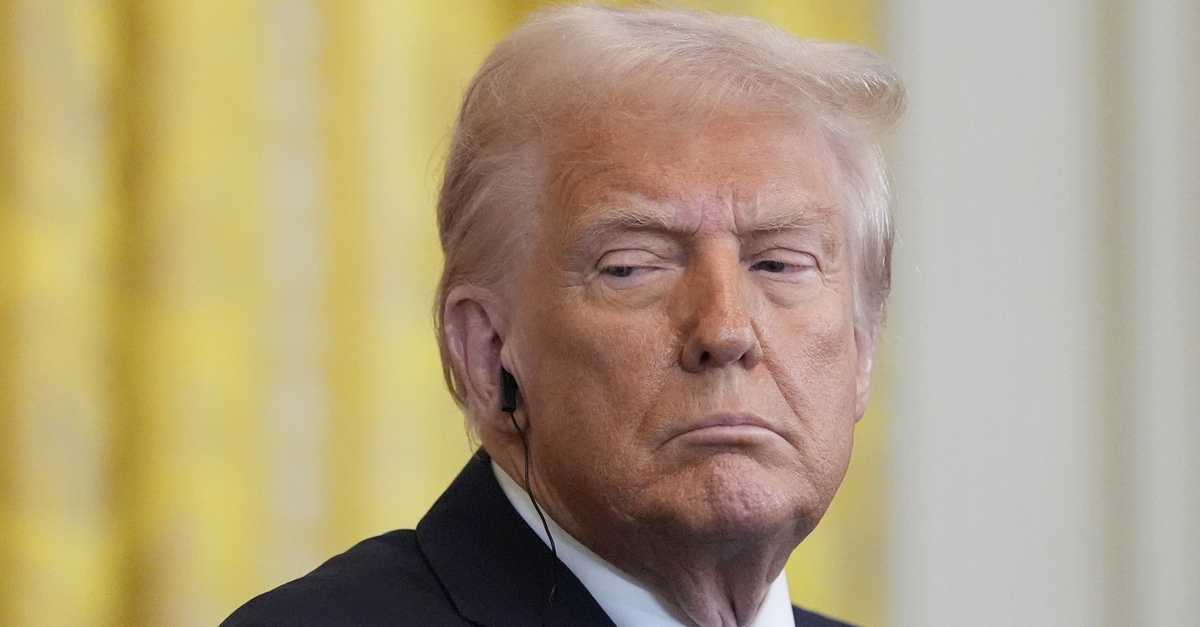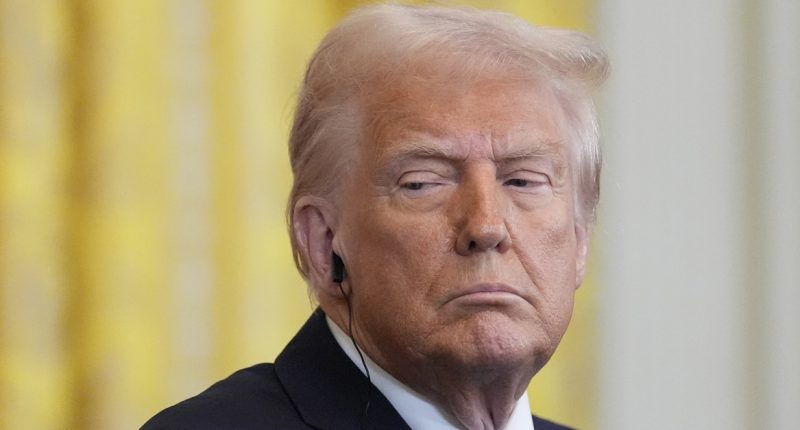
President Donald Trump listens during a news conference with Japanese Prime Minister Shigeru Ishiba in the East Room of the White House, Friday, Feb. 7, 2025, in Washington (AP Photo/Alex Brandon).
A federal judge in Washington, D.C., engaged in an extensive dressing down of the Trump administration during a Tuesday afternoon hearing that ended in a series of onerous directions to enforce compliance with a temporary restraining order that unfroze contract spending for the U.S. Agency for International Development (USAID).
The order in the underlying case has been in place for 12 days. And, yet, to date, the government has not complied with the court’s directive to restore funding to worldwide aid programs.
U.S. District Judge Amir H. Ali, a Joe Biden appointee, was well aware that his order — which actually covers two similar and since-consolidated cases — was being flouted by the government.
On Tuesday, the judge lost patience with the unlucky government lawyer tasked with defending the administration’s conduct.
“I don’t know why I can’t get a straight answer from you,” the judge intoned, according to a courtroom report by Politico journalist Kyle Cheney. “Are you aware of an unfreezing of the disbursement of funds for those contracts and agreements that were frozen before Feb. 13?”
The government lawyer replied: “I’m not in a position to answer that.”
That back-and-forth set the tone for the arguments between the U.S. Department of Justice and the nonprofit plaintiffs in the case.
“We’re now 12 days in,” the judge reportedly said later on — referring to when the temporary restraining order was initially entered. “You can’t answer me whether any funds that you kind of acknowledged are covered by the court’s order have been unfrozen?”
More Law&Crime coverage: Trump-appointed judge refuses to restore AP’s White House access, but warns Trump admin to ‘consider’ if its actions are ‘really appropriate’
The unimpressed judge has trod down this exact territory before.
On Feb. 20, Ali issued a seven-page order to enforce the restraining order — while rejecting a motion for contempt against U.S. Secretary of State Marco Rubio and USAID Deputy Secretary Pete Marocco.
“[T]he TRO does not permit Defendants to simply search for and invoke new legal authorities as a post-hoc rationalization for the enjoined agency action,” the order reads. “Defendants have continued their blanket suspension of funds pending review of agreements, the very action that the TRO enjoined.”
After that, however, the administration appeared to continue defying the original court order. The plaintiffs filed an emergency motion on Feb. 24, asking the court to, yet again, enforce the order.
On Tuesday, the judge issued highly specific demands for how the government must comply with the court’s order going forward.
Love true crime? Sign up for our newsletter, The Law&Crime Docket, to get the latest real-life crime stories delivered right to your inbox
In the end, USAID was directed to pay all invoices for work performed prior to the issuance of the order on Feb. 13. Those bills, the court ruled, must be paid by midnight tomorrow, Feb. 26.
Ali made clear to note that paying those contractual obligations “in no way narrows the scope of the TRO itself.” And, to make that point clear, the judge reiterated that the government “shall take no actions to impeded the prompt payment of foreign assistance funds.”
The court also directed the defendants to continue working with the plaintiffs on a joint status report — due tomorrow by 12:00 p.m. — that outlines “what steps have been taken” to comply with the court’s order and subsequent order enforcing compliance.
But the judge was not nearly done — and clearly unsatisfied with the efforts taken by the Trump administration in the case so far.
“To the extent there remain any disputes as to compliance, the parties shall identify agency officials, employees or other witnesses who can testify under oath about those disputes,” Ali said — with an eye toward creating an evidentiary record at the trial court level.
To that end, the court also directed the government to provide “any directives or guidance” that have been issued since the initial court order “which pertain to the implementation of the TRO.”
This specific demand, the court noted, was based on the discussion during the hearing — and is prospective; the court is requiring documentation of any internal government documents concerning compliance with the order that are filed up until noon on Feb. 26.






